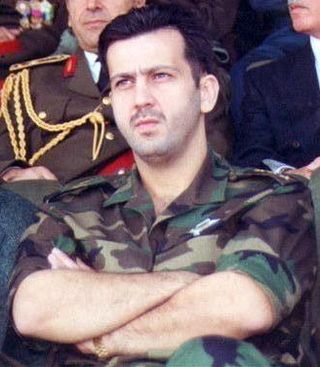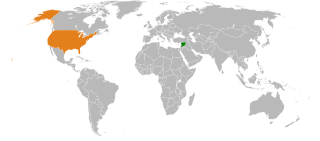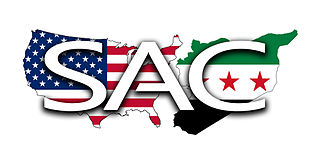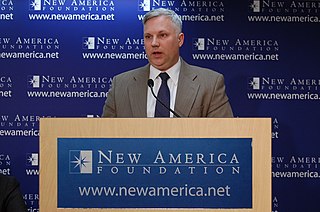Related Research Articles

Bashar al-Assad is a Syrian politician who is the current and 19th president of Syria since 17 July 2000. In addition, he is the commander-in-chief of the Syrian Armed Forces and the secretary-general of the Central Command of the Arab Socialist Ba'ath Party, which nominally espouses a neo-Ba'athist ideology. His father and predecessor was General Hafiz al-Assad, whose presidency in 1971–2000 marked the transfiguration of Syria from a republican state into a de facto dynastic dictatorship, tightly controlled by an Alawite-dominated elite composed of the armed forces and the Mukhabarat, who are loyal to the al-Assad family.

Maher al-Assad is a Syrian general and commander of the Syrian Army's elite 4th Armoured Division, which together with Syria's Military Intelligence form the core of the country's security forces. He is also a member of the Central Committee of the Ba'ath Party's Syrian Regional Branch.

The situation for human rights in Syria is considered one of the worst in the world and has been globally condemned by international organizations like the United Nations, Human rights Watch, Amnesty International, and the European Union. Civil liberties, political rights, freedom of speech and assembly are virtually non-existent under the Ba'athist government of Bashar al-Assad; which is regarded as "one of the world's most repressive regimes". The 50th edition of Freedom in the World, the annual report published by Freedom House since 1973, designates Syria as "Worst of the Worst" among the "Not Free" countries. The report lists Syria as one of the two countries to get the lowest possible score (1/100).

Diplomatic relations between Syria and the United States are currently non-existent; they were suspended in 2012 after the onset of the Syrian Civil War. Priority issues between the two states include the Arab–Israeli conflict, the Golan Heights annexation, Iraq War, alleged state-sponsorship of terrorism, occupation of Lebanon, etc.

The Syrian civil war is an ongoing multi-sided conflict in Syria involving various state-sponsored and non-state actors. In March 2011, popular discontent with the rule of Bashar al-Assad triggered large-scale protests and pro-democracy rallies across Syria, as part of the wider Arab Spring protests in the region. After months of crackdown by governments security apparatus, various armed rebel groups such as the Free Syrian Army began forming across the country, marking the beginning of the Syrian insurgency. By mid-2012, the crisis had escalated into a full-blown civil war.

Syrian American Council is a 501c3 grassroots organization of Syrian-Americans that does community organizing, awareness-raising, youth empowerment, media outreach, advocacy, and support for Syrian-Americans and the Syrian Opposition. As the largest and oldest grassroots organization of Syrian-Americans, it identifies its mission as “to organize and mobilize the Syrian-American community so that its voice is heard on issues of critical importance to Syrian-Americans."
This is a broad timeline of the course of major events of the Syrian civil war. It only includes major territorial changes and attacks and does not include every event.

Humanitarian aid during the Syrian civil war has been provided by various international bodies, organizations and states. The main effort is coordinated by Jonh Ging of the United Nations Office for the Coordination of Humanitarian Affairs (UNOCHA). In 2014, U.N. Security Council Resolution 2165 authorised humanitarian aid to be supplied via four border crossings not controlled by the Syrian government, generally to supply rebel-controlled territory.

The Syrian Emergency Task Force (SETF) is a United States-based, 501-C(3) organization established in March 2011 to support the Syrian opposition. SETF advocates in solidarity with the Syrian rebels to inform and educate the American public and its representatives about their struggle.
The 2014 Syrian detainee report, also known as the Caesar Report, formally titled A Report into the credibility of certain evidence with regard to Torture and Execution of Persons Incarcerated by the current Syrian regime, is a report that claims to detail "the systematic killing of more than 11,000 detainees by the Syrian government in one region during the Syrian Civil War over a two and half year period from March 2011 to August 2013". It was released on 21 January 2014, a day before talks were due to begin at the Geneva II Conference on Syria, and was commissioned by the government of Qatar. Qatar has been a key funder of the rebels in Syria. The Syrian government questioned the report due to its ties to hostile sides against the Syrian government and pointed to how many of the photos were identified as casualties among international terrorists fighting the Syrian government or Syrian army troops or civilians massacred by them due to supporting the Syrian government.

Joel Rayburn is a retired United States Army officer, former diplomat, and historian who served as the United States Special Envoy for Syria from 2018 to 2021. He has published books and articles about the American invasion of Iraq in 2003 and its results. From January to July 2021 he served as a special advisor for Middle East affairs to U.S. Senator Bill Hagerty (R-TN). He is currently a Fellow in the National Security Program at the New America Foundation.
Syrian American Medical Society is a non-profit, non-political, professional organization representing thousands of Syrian-American medical professionals in the United States that provides humanitarian assistance to Syrians in need. Since the Syrian Conflict began, SAMS has supported field hospitals, clinics, and surgical centers in Syria while assisting Syrian doctors, nurses, and health workers by paying salaries and providing training.
The Caesar Syria Civilian Protection Act of 2019, also known as the Caesar Act, is United States legislation that sanctions the Syrian government, including Syrian president Bashar al-Assad, for war crimes against the Syrian population. The Act was signed into law by President Trump in December 2019, and came into force on June 17, 2020.

On the morning of 7 April 2017, the United States launched 59 Tomahawk cruise missiles from the Mediterranean Sea into Syria, aimed at Shayrat Airbase controlled by the Syrian government. The strike was executed on the authorization of U.S. President Donald Trump, as a direct response to the Khan Shaykhun chemical attack that occurred on 4 April.
The following is a timeline of the Syrian Civil War from January to April 2019. Information about aggregated casualty counts is found at Casualties of the Syrian Civil War.
During Tulsi Gabbard's tenure as a congresswoman and presidential candidate, she placed much emphasis on her foreign policy views and regarded them as inseparable from her domestic policy views. She criticizes what she terms the "neoliberal/neoconservative war machine", which pushes for US involvement in "wasteful foreign wars". She has said that the money spent on war should be redirected to serve health care, infrastructure, and other domestic priorities. Nevertheless, she describes herself as both a hawk and a dove: "When it comes to the war against terrorists, I'm a hawk", but "when it comes to counterproductive wars of regime change, I'm a dove".
2010s in Syria political history refers to events during the 2010s in political history of Syria.
The following is a timeline of the Syrian Civil War from September–December 2019. Information about aggregated casualty counts is found at Casualties of the Syrian Civil War.
The following is a timeline of the Syrian civil war for 2020. Information about aggregated casualty counts is found at Casualties of the Syrian civil war.

International sanctions against Syria are a series of economic sanctions and restrictions imposed by the European Union, the United States, Canada, Australia, Switzerland, mainly as a result of the repression of civilians in the Syrian civil war from 2011 onwards. The US sanctions against Syria are the most severe, as they affect third-parties as well, and amount to an embargo. U.S. secondary sanctions were limited until 2020 when the Caesar Act entered into force. The intent is to prevent the Syrian government from employing violence against its citizens and to motivate political reforms that could solve the root causes of the conflict.
References
- ↑ Amos, Deborah (December 17, 2019). "Congress Authorizes Sanctions On Syria, Iran And Russia". NPR.
- Amos, Deborah (January 25, 2018). "Nearly 7,000 Syrians Are Waiting To See If Their Protected Status Will Be Renewed". NPR.
- Touré, Saliho (September 4, 2019). "Like Syrians now, my family fled Liberia as refugees. Unlike Syrians, America welcomed us". USA Today.
- Harris, Bryant (November 1, 2019). "Congress sounds alarm on weaponization of Syrian aid". AL Monitor.
- Pregent, Michael; Hanichak, Erica (September 27, 2018). "Countering Iran means sanctioning terrorist militias". the Hill.
- Lewis, Matt (January 4, 2019). "Can the World Survive Two More Years of Donald Trump?". Daily Beast.
- Yingst, Trey (September 4, 2019). "Syrian civil war has damaged more than 120 churches, report finds". Fox News.
- McKay, Hollie (May 11, 2019). "Syrian hospitals bombed by Assad, Russian troops after coordinates were shared with the UN". Fox News.
- McKay, Hollie (May 23, 2019). "Syrian doctor describes latest alleged chemical attack as US mulls response". Fox News.